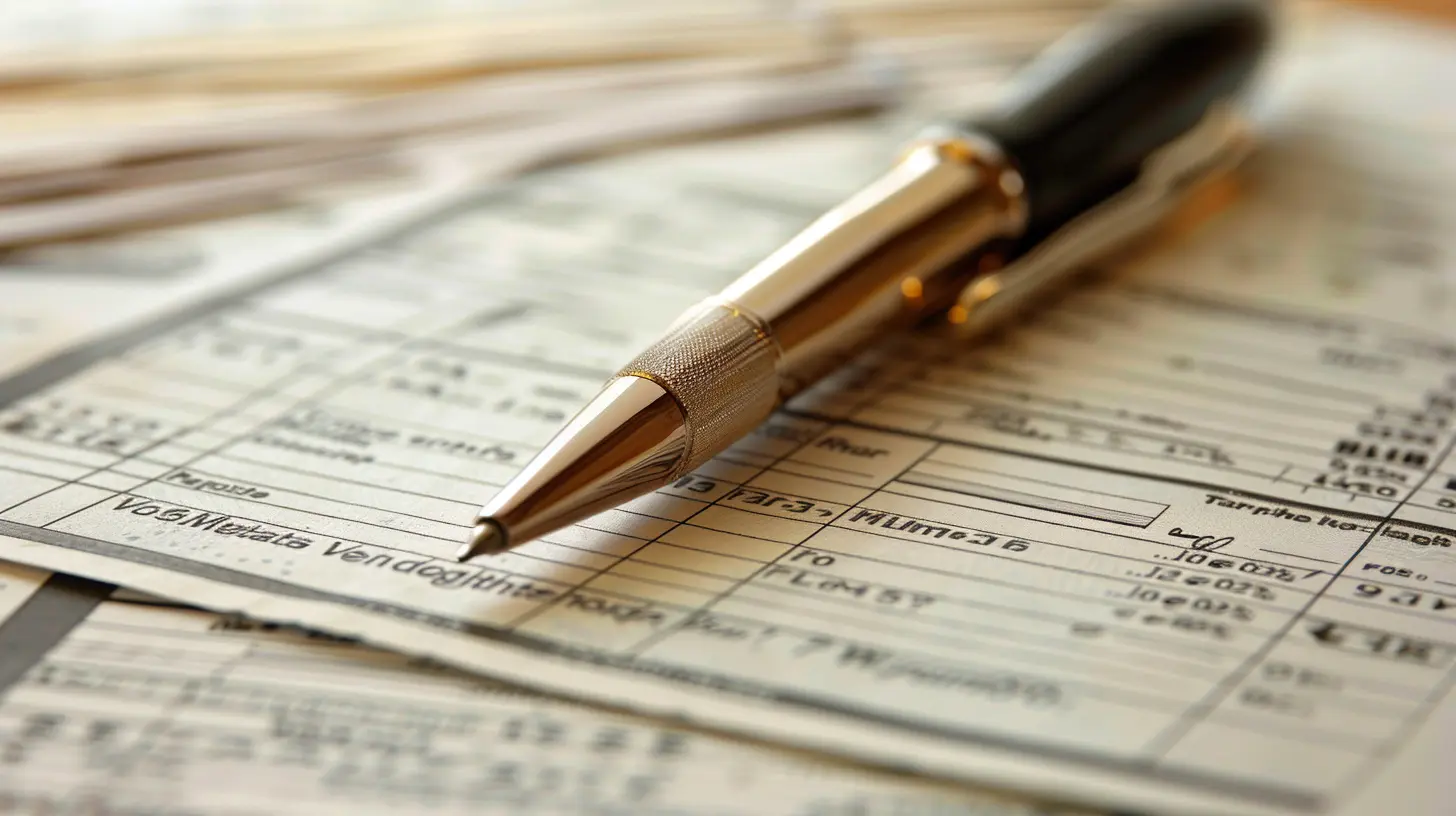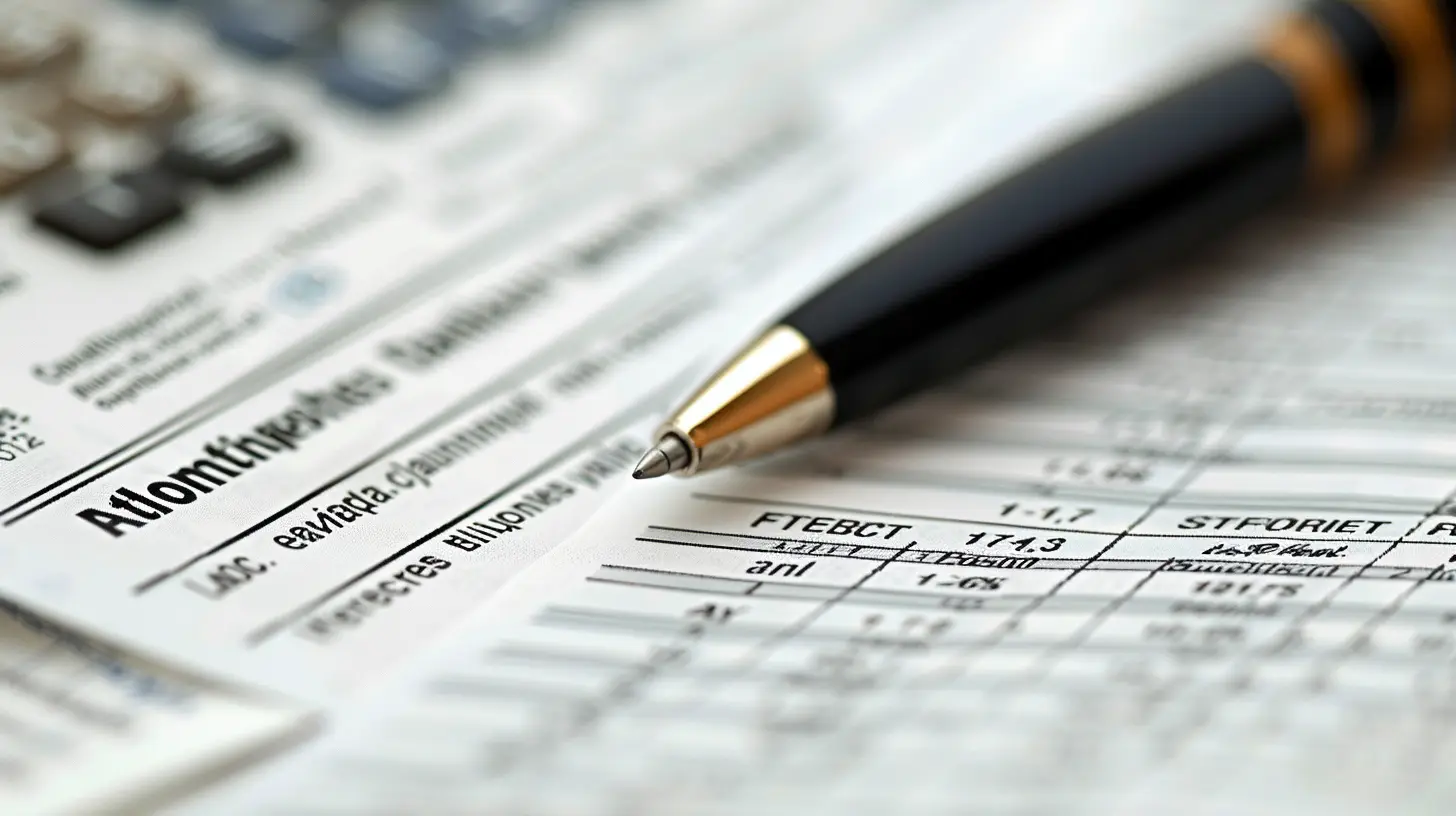Tax Efficiency for Freelancers: Tips to Maximize Deductions
28 October 2025
So, you’ve joined the freelancing world—flexible hours, working in your pajamas, and calling the shots. Sounds like a dream, right? But then tax season rolls around, and suddenly the freedom isn’t feeling so free. The truth is, as a freelancer, taxes can get tricky. You’re not just earning money—you’re running a business. And with that comes the responsibility of managing your income and expenses like a pro.
One major way to keep more of your hard-earned cash? Tax efficiency. You need to know how to dodge unnecessary tax bills (legally, of course) and take advantage of deductions you’re entitled to. Stick around, because we’re about to break down everything you need to know to pay less and keep more.
What Does Tax Efficiency Even Mean?
Let’s get one thing straight—being tax-efficient doesn’t mean cheating the system. It just means using available tax rules in your favor. Think of it like playing a game of chess: every move matters, and smart strategies win the game.Tax efficiency for freelancers means structuring your income and expenses in a way that legally minimizes your tax liability. It’s about making the best possible tax decisions so you don’t end up handing Uncle Sam more than necessary.
Why Freelancers Need to Pay Extra Attention
If you’re used to working a 9-to-5, taxes were probably pretty straightforward. Your employer withheld your tax, gave you a W-2, and boom—you just filed and called it a day.Now that you’re freelancing? You’re the boss, the employee, the bookkeeper, and the CFO. You’ve got to handle self-employment taxes, estimated payments, and deductions all on your own. It’s a lot, but here’s the good news—you’ve got more room to lower your tax bill if you play it smart.
The Self-Employment Tax Reality Check
Let’s talk about the not-so-fun part: self-employment tax. As a freelancer, you’re responsible for both the employer and employee portion of Social Security and Medicare taxes. That’s 15.3% right off the top, before you even look at income taxes.Now breathe. You don’t have to panic because there are plenty of deductions that can lower your taxable income, which means reducing both your income and self-employment taxes.
Top Tax Deductions Every Freelancer Should Know
Okay, here’s the juicy part. These deductions are your secret weapons. Think of them as tools in your freelancing toolbox, each one helping you chip away at your tax bill.1. Home Office Deduction
Do you have a dedicated space in your home where you hustle on client work? If it's used exclusively for business, you can write off a portion of your rent or mortgage, utilities, and maintenance costs.There are two methods here:
- Simplified: $5 per square foot, up to 300 square feet.
- Actual Expense: Calculate your total home expenses and apply the percentage of your home used for business.
Pro Tip: Snap a pic of your home office setup. If the IRS ever asks, you’ll have proof.
2. Office Supplies and Equipment
Paper, pens, printer ink, and yep—even that new ergonomic chair—all count. If it’s used for work, it’s deductible. Just keep those receipts organized.3. Internet and Phone Bills
Your internet and phone are vital for doing business, right? You can deduct the portion used for work. If 70% of your phone use is client calls and emails, you can reasonably claim 70% of that bill.4. Software and Subscriptions
Do you pay for Adobe Creative Cloud, QuickBooks, Canva, or any online tools to run your freelance gig? Good news—those are all deductible.5. Professional Services
Hired a CPA? Paid a lawyer to review your contracts? Any professional fees related to your business are deductible. They’re not just helpful—they’re tax savers too.6. Marketing and Advertising
Running Facebook ads, building a website, printing business cards, or even paying for email hosting? That’s marketing—and yes, that’s deductible too.7. Travel and Meals (Within Reason)
Business-related travel expenses—flights, hotels, rental cars—are deductible. So are 50% of meals during business trips or lunches with clients (as long as business is actually discussed).No, grabbing tacos on your couch while watching Netflix doesn’t count.
8. Education and Training
Online courses, workshops, industry events—if it helps you improve your skills or grow your business, it’s fair game.9. Health Insurance Premiums
If you’re self-employed and not eligible for a plan through a spouse, you may be able to deduct 100% of your premiums. That includes medical, dental, and even long-term care.10. Retirement Contributions
Setting up a solo 401(k) or SEP IRA? You can make contributions and lower your taxable income. It’s like getting paid to save for your future.Track Everything Like a Hawk
Want to know the real trick to maximizing deductions? Keeping killer records.You don’t need a Ph.D. in accounting, but you do need a system. Apps like QuickBooks, FreshBooks, or even a good ol’ Excel spreadsheet can help. Log every expense, scan receipts, and separate personal from business spending.
Messy records = missed deductions. Clean books = less stress and a lower tax bill.
Don’t Sleep on Quarterly Estimated Taxes
Freelancers have to pay taxes throughout the year—not just in April. Yup, that means Uncle Sam wants a check every quarter.The IRS wants you to pay as you earn, so you’ll need to estimate your total income and send in appropriate payments in April, June, September, and January.
If you don’t? You could face penalties and interest.
Tip: Use IRS Form 1040-ES to calculate what you owe or let accounting software automate it for you.
Hire a Pro If You’re Unsure
Yeah, we said it. Sometimes it’s smarter (and cheaper in the long run) to bring in a tax professional.A CPA who understands freelance taxes can spot deductions you didn’t know about, make sure you’re compliant, and possibly save you thousands over time.
Plus, they’ll help you sleep easier at night. And that’s priceless.
Quick Tips to Keep Your Freelance Taxes in Check
Let’s wrap all of this up with some rapid-fire pointers to keep your tax game strong:- Open a separate bank account for your freelance income.
- Save at least 25-30% of your income for taxes.
- Log your mileage if you drive for business.
- Keep digital copies of all receipts—paper fades, files don’t.
- Review your financials monthly. Don’t wait until tax time.
Tax Efficiency Is a Long Game
Building tax efficiency isn’t a one-time trick—it’s a habit. The more organized you are and the more you understand the deductions that apply to you, the more you’ll keep over time.Think of it like building a business muscle. At first, it’s awkward and slow. But with practice, you’ll get stronger, faster, and maybe even start to enjoy tax time (okay—maybe not enjoy, but at least tolerate).
Final Thoughts
Being your own boss comes with a lot of perks—but it also means wearing a lot of hats, especially during tax season. With smart planning, detailed record-keeping, and knowing what deductions are at your fingertips, you can dramatically lower your tax bill and boost your bottom line.You’ve already taken the plunge into freelancing—don’t let taxes cramp your style. Get organized, get savvy, and keep more of what you earn. Your future (and your bank account) will thank you.
all images in this post were generated using AI tools
Category:
Tax EfficiencyAuthor:

Knight Barrett
Discussion
rate this article
1 comments
Zarenith Gutierrez
Excited to learn new deduction strategies today!
October 31, 2025 at 5:51 AM

Knight Barrett
Glad to hear that! Enjoy exploring the tips and maximizing your deductions!


